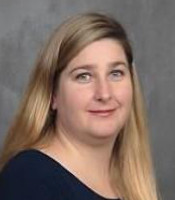Halle Worley, MS
Halle Worley is a clinician who is supervised by Dr. John Glovan. Halle provides therapy for those who are 18 years of age and older, and she also provides formal assessments for children and adults ages 4 and up. Halle has experience in using formal assessment to gain information and provide recommendations for children, youth, and adults. She is competent in assessing clients’ intellectual and learning abilities, personality, ADHD, Autism, symptom profiles, and family dynamics. Halle has training and experience working with issues such as ADHD, depression, anxiety, trauma, bipolar disorder, adjustment difficulties, poor self-esteem, OCD, panic attacks, and stress management. Halle’s treatment approach is integrative with a foundation in cognitive behavioral therapy (CBT). She also frequently uses skills and approaches from Person Centered Therapy, Cognitive Behavioral Therapy, Dialectical Behavioral Therapy, and Psychodynamic Therapy to formulate an individualized treatment approach to teach clients how to regulate emotional responses and bodily sensations that may arise.
Halle earned her Bachelor of Science in Psychology at John Carroll University in 2005, before earning her Master of Science in Psychology (Clinical Psychology Specialization) from Capella University in 2019. She is currently in the Clinical Psychology Doctoral program at Cappella University. She has previously worked in-patient and at various outpatient practices.
Halle is currently accepting clients who are 18 years of age and older.

Contact
Position:
Master of Science
Address:
8224 Mentor Ave, Suite 208
Mentor Ohio 44060
Email:
hworley@behavioralwellnessgroup.com
Phone:
440-392-2222 EXT 854
Fax:
440-565-2349
Articles
Teens and Opioids
We hear about it frequently. It’s on the evening news, online, and we hear it in conversation. America has an opioid crisis and we’ve had one for decades. It’s nothing new really and perhaps we are even desensitized to it, but opioids and overdoses remain an issue for both adults and teens. Youth drug deaths have quadrupled over the last 20 years mainly involving fentanyl which has grown 6x since 2016 (songforcharlie.org). Over 10 million pills containing fentanyl have been…
Self Care During Pregnancy
Becoming pregnant is a time of many mixed emotions that can range from excitement to anxiety. During the 10 months of time leading up to your child being born, it can be helpful to create a routine to take care of yourself and your growing baby bump. Below are some tips that can help you to feel as prepared as you can leading up to your child being born: It can be helpful during your pregnancy journey to set up…
“Be curious, not judgmental”
This is a line I most recently heard in the great show, “Ted Lasso“. It occurred when a bet was made with Ted assuming that he was a novice at shooting darts without asking to see if he had played before. Of course, he had been playing for years and ultimately won the bet. It reminded me of the significance of finding out why people do what they do, and why they have become who they became. It is a…
Social Media Addiction
Social media addiction is defined as an unhealthy dependence on interactive platforms such as Facebook, twitter, Instagram, snapchat and Tik Tok. It is often characterized by being overly concerned about social media driven by uncontrollable urge to on or to use social media and devoting so much time/effort that it interferes with other parts of your life. According to a Harvard study, self-disclosure on social media, “lights up” the same part of the brain that also ignites when someone engages…
All or Nothing Thinking and Various Other Popular Cognitive Distortions
I was trying to think of a blog subject to write about this time for my blog. As I contemplated this, I noticed almost everyone in my Dialectical Behavior Therapy (DBT) Intensive Outpatient Group (IOP) was talking about their struggle to be perfect, or how they feel like failures if things are not exactly as they think they should be. I was hearing phrases like: All or nothing thinking, often called black and white thinking, can go hand in hand…

